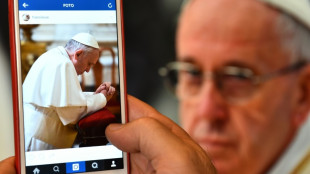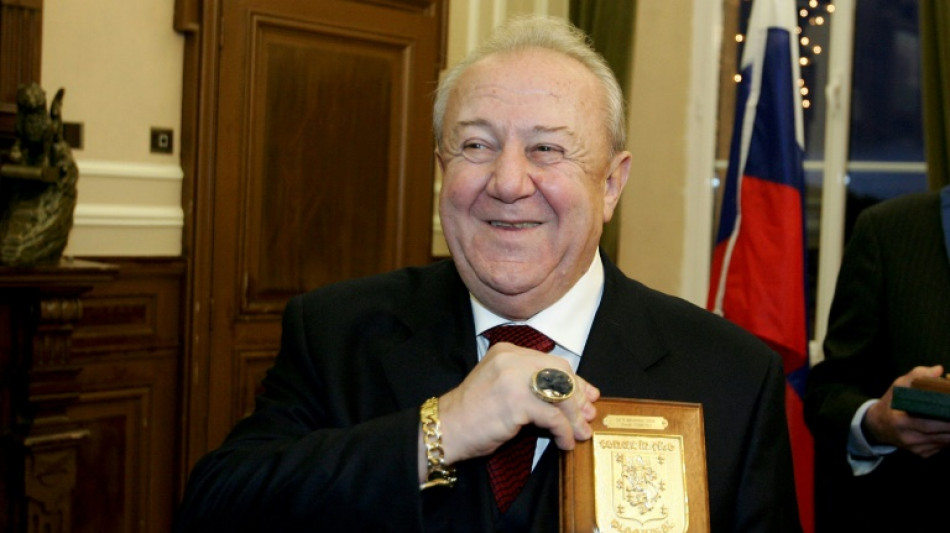
-
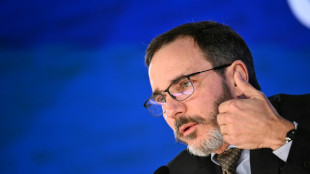 World could boost growth by reducing trade doubt: IMF chief economist
World could boost growth by reducing trade doubt: IMF chief economist
-
IMF slashes global growth outlook on impact of US tariffs

-
 IMF slashes China growth forecasts as trade war deepens
IMF slashes China growth forecasts as trade war deepens
-
Skipper Shanto leads Bangladesh fightback in Zimbabwe Test

-
 US VP Vance says 'progress' in India trade talks
US VP Vance says 'progress' in India trade talks
-
Ex-England star Youngs to retire from rugby

-
 Black Ferns star Woodman-Wickliffe returning for World Cup
Black Ferns star Woodman-Wickliffe returning for World Cup
-
Kremlin warns against rushing Ukraine talks
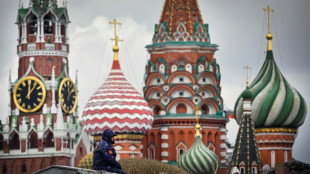
-
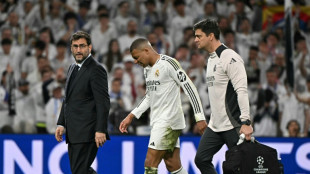 Mbappe aiming for Copa del Rey final return: Ancelotti
Mbappe aiming for Copa del Rey final return: Ancelotti
-
US universities issue letter condemning Trump's 'political interference'

-
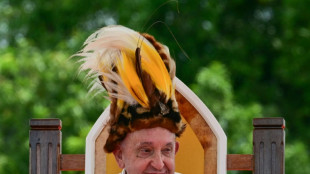 Pope Francis's unfulfilled wish: declaring PNG's first saint
Pope Francis's unfulfilled wish: declaring PNG's first saint
-
Myanmar rebels prepare to hand key city back to junta, China says
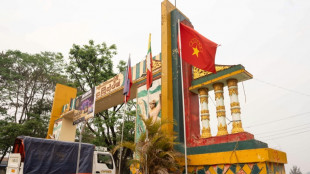
-
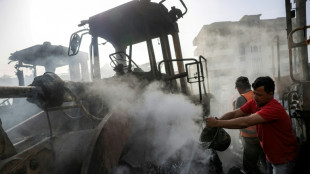 Hamas team heads to Cairo for Gaza talks as Israel strikes kill 26
Hamas team heads to Cairo for Gaza talks as Israel strikes kill 26
-
Pianist to perform London musical marathon
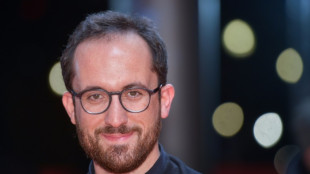
-
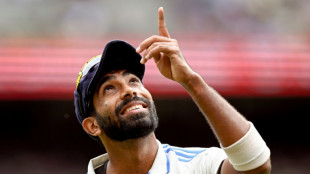 India's Bumrah, Mandhana win top Wisden cricket awards
India's Bumrah, Mandhana win top Wisden cricket awards
-
Zurab Tsereteli, whose monumental works won over Russian elites, dies aged 91
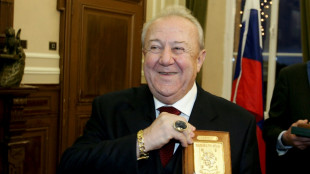
-
 Roche says will invest $50 bn in US, as tariff war uncertainty swells
Roche says will invest $50 bn in US, as tariff war uncertainty swells
-
Pope Francis's funeral set for Saturday, world leaders expected
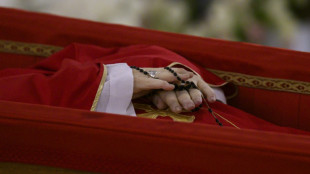
-
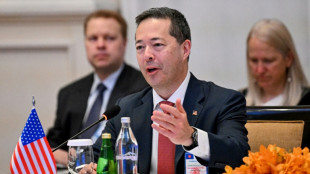 US official asserts Trump's agenda in tariff-hit Southeast Asia
US official asserts Trump's agenda in tariff-hit Southeast Asia
-
World leaders set to attend Francis's funeral as cardinals gather
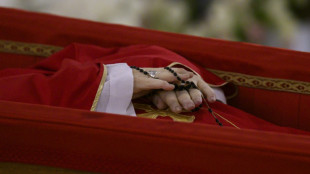
-
 Gold hits record, stocks mixed as Trump fuels Fed fears
Gold hits record, stocks mixed as Trump fuels Fed fears
-
Roche says will invest $50 bn in US over next five years

-
 Fleeing Pakistan, Afghans rebuild from nothing
Fleeing Pakistan, Afghans rebuild from nothing
-
US Supreme Court to hear case against LGBTQ books in schools

-
 Pistons snap NBA playoff skid, vintage Leonard leads Clippers
Pistons snap NBA playoff skid, vintage Leonard leads Clippers
-
Migrants mourn pope who fought for their rights
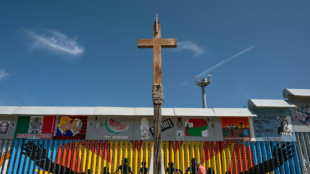
-
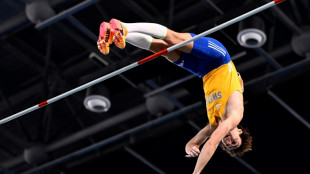 Duplantis kicks off Diamond League amid Johnson-led changing landscape
Duplantis kicks off Diamond League amid Johnson-led changing landscape
-
Taliban change tune towards Afghan heritage sites
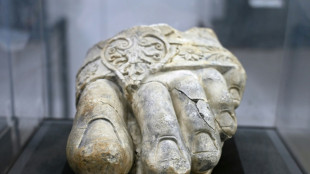
-
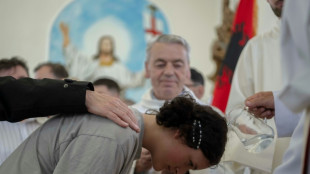 Kosovo's 'hidden Catholics' baptised as Pope Francis mourned
Kosovo's 'hidden Catholics' baptised as Pope Francis mourned
-
Global warming is a security threat and armies must adapt: experts

-
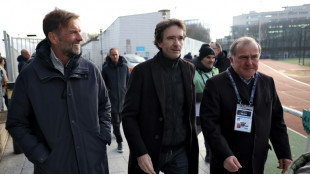 Can Europe's richest family turn Paris into a city of football rivals?
Can Europe's richest family turn Paris into a city of football rivals?
-
Climate campaigners praise a cool pope

-
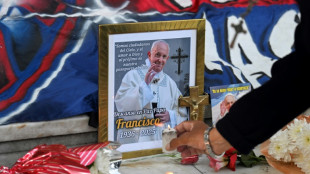 As world mourns, cardinals prepare pope's funeral
As world mourns, cardinals prepare pope's funeral
-
US to impose new duties on solar imports from Southeast Asia

-
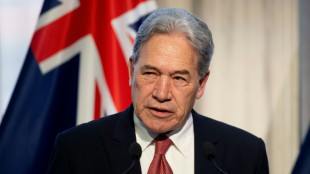 Draft NZ law seeks 'biological' definition of man, woman
Draft NZ law seeks 'biological' definition of man, woman
-
Auto Shanghai to showcase electric competition at sector's new frontier

-
 Tentative tree planting 'decades overdue' in sweltering Athens
Tentative tree planting 'decades overdue' in sweltering Athens
-
Indonesia food plan risks 'world's largest' deforestation

-
 Gold hits record, stocks slip as Trump fuels Fed fears
Gold hits record, stocks slip as Trump fuels Fed fears
-
Trump helps enflame anti-LGBTQ feeling from Hungary to Romania
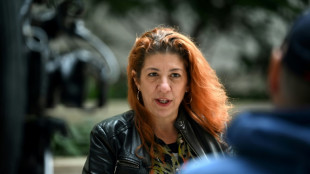
-
 Woe is the pinata, a casualty of Trump trade war
Woe is the pinata, a casualty of Trump trade war
-
'Like orphans': Argentina mourns loss of papal son

-
 Trump tariffs torch chances of meeting with China's Xi
Trump tariffs torch chances of meeting with China's Xi
-
X rival Bluesky adds blue checks for trusted accounts

-
 China to launch new crewed mission into space this week
China to launch new crewed mission into space this week
-
Morocco volunteers on Sahara clean-up mission

-
 Latin America fondly farewells its first pontiff
Latin America fondly farewells its first pontiff
-
'I wanted it to work': Ukrainians disappointed by Easter truce

-
 Harvard sues Trump over US federal funding cuts
Harvard sues Trump over US federal funding cuts
-
2025 U.S. Open Polo Championship Final Concludes American High-Goal Season, Supported by U.S. Polo Assn.


Zurab Tsereteli, whose monumental works won over Russian elites, dies aged 91
Georgian-Russian sculptor Zurab Tsereteli, a politically connected artist known for his monumental yet sometimes divisive works, has died aged 91, Russian news agencies reported Tuesday.
He died at his home in Peredelkino, a village southwest of Moscow, "surrounded by his works", his assistant Sergei Shagulashvili told the RIA news agency.
Born and trained in Tbilisi, Tsereteli rose to prominence designing resort complexes in then-Soviet Georgia during the 1960s.
He became chief artist of the USSR's Ministry of Foreign Affairs and later head of Russia's influential Academy of Arts, serving in the role from 1997 until his death.
Popular with Russia's elite, Tsereteli's friendship with Moscow's mayor Yury Luzhkov in the 1990s gave him what critics called a "monopoly" on public art.
He populated the Russian capital with his distinct brand of monumental architecture, earning the wrath of many Russian intellectuals in the process.
His giant statue of Peter the Great on a ship on the Moscow River got a tongue-lashing in the press, while a 500-tonne monument to Christopher Columbus built in the early 1990s was rejected by several US cities as a monstrosity.
- Reverence for Putin -
Tsereteli is more fondly known for presiding over the reconstruction of Moscow's Cathedral of Christ the Saviour, an Orthodox church meticulously rebuilt in the 1990s after it was demolished by Stalin.
Tsereteli also enjoyed brief success in the West during and after the collapse of the Soviet Union, unveiling works that embodied the fall of communism: "Break the Wall of Distrust" in London in 1989 and "Good Defeats Evil" in New York in 1990 -- made partly from the remnants of Soviet and American missiles.
Encouraged by this success, he attempted to donate a monument dedicated to the victims of the September 11, 2001 attacks to the city of New York, a giant 30-metre (100-foot) sculpture featuring a teardrop, but the authorities politely declined his offer.
The work finally found a home in 2005 in Bayonne, a city of 60,000 in New Jersey, in view of downtown Manhattan across the water.
Tsereteli revered President Vladimir Putin, unveiling a five-metre bronze statue of the Russian leader posing in judo gear in 2004.
But the piece was so badly received by the Kremlin that a Russian media report quoted an anonymous official as saying it should "not be exhibited anywhere except in the courtyard of the sculptor's own home".
"He of all people should know that President Putin has an extremely negative attitude towards such things," the official told the Komsomolskaya Pravda tabloid.
R.Flueckiger--VB


